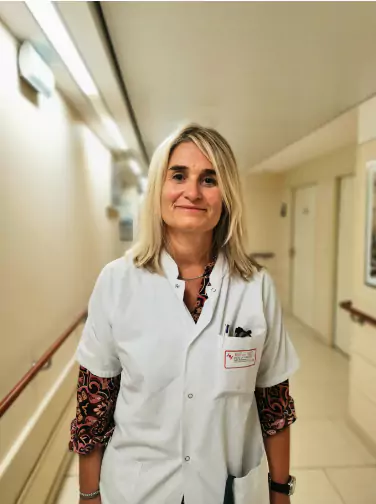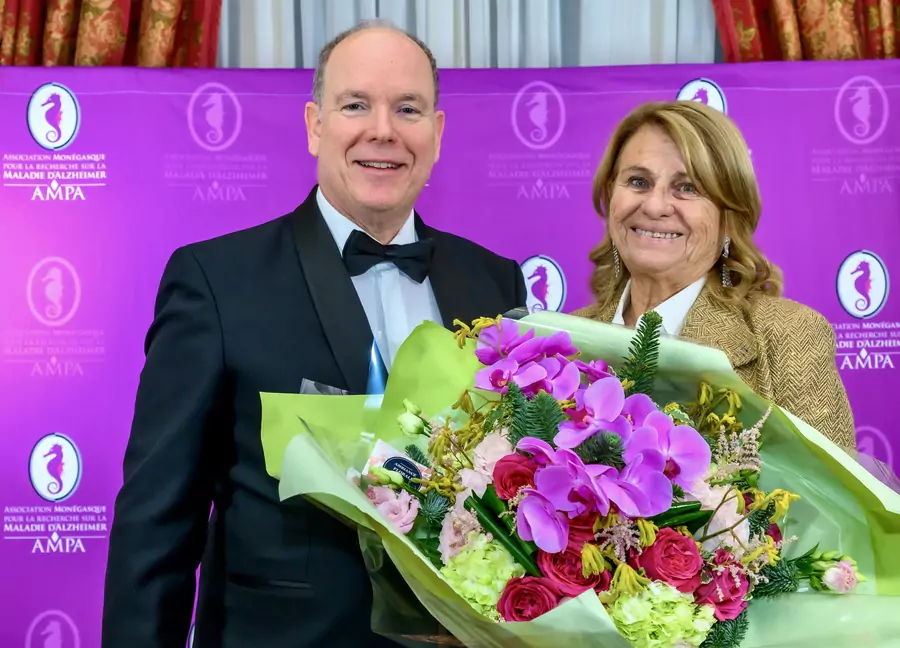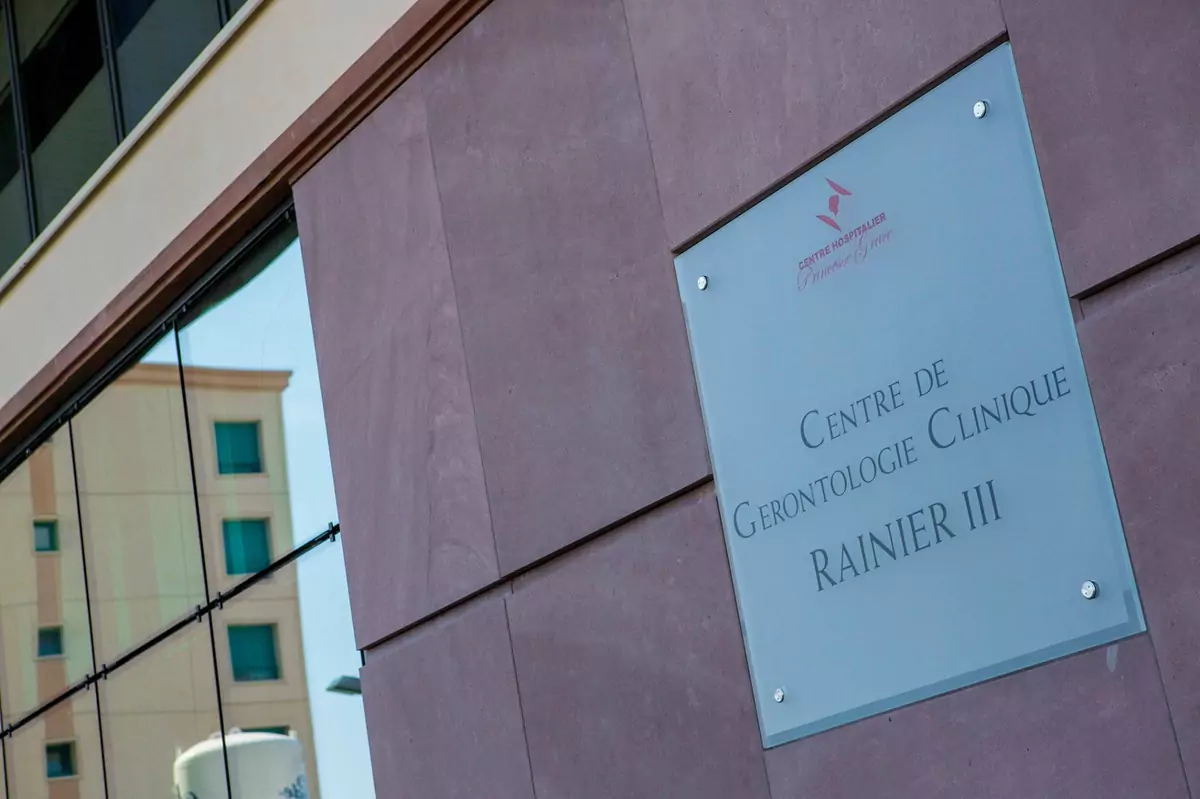In an interview with Dr. Sandrine Louchart de la Chapelle, Head of the Clinical Gerontology Department and Memory Centre at the Centre Hospitalier Princesse Grace (CHPG), Monaco Life learns about the groundbreaking work being done at the hospital in the name of improving patient care for Alzheimer’s sufferers, as well as the vital role of the Monegasque Association for Research on Alzheimer’s Disease (AMPA) in advancing research and uncovering new ways of treating—and understanding—the disease.
On 5th December, the AMPA, a local association dedicated to combating the negative effects of Alzheimer’s, a neurodegenerative condition that deeply impacts patients and their families, celebrated its 15th anniversary with a gala event at the Hôtel Hermitage in Monaco.
“Since its creation, AMPA has focused on three essential pillars: supporting research, raising awareness among all of us and providing assistance to the families of patients,” says Catherine Pastor, the president of the AMPA. “These efforts are even more crucial as, in the context of an ageing population, Alzheimer’s disease has become a major public health issue.”
Indeed, Alzheimer’s disease is the leading cause of dementia, resulting in a gradual loss of autonomy and significantly diminishing the quality of life for both patients and their caregivers. In France, approximately 225,000 new cases are diagnosed annually, predominantly among the elderly. More than 900,000 individuals in L’Hexagone are living with the disease—around 8% of those over the age of 65. It is a similar story in Monaco. In both nations, these numbers are expected to rise further in the coming years, underlining the critical need for comprehensive strategies to address this growing challenge.
Pioneering geriatric care
In Monaco, the CHPG’s Rainier III Clinical Gerontology Centre plays a pivotal role in providing specialised care for the elderly, including those with Alzheimer’s disease.
Inaugurated in February 2013, the geriatric care centre spans 22,400 square metres over 10 levels and offers 210 individual rooms. Its services encompass long-term care units, a cognitive-behavioural unit for patients with orientation and behavioural challenges, and a Memory Centre for assessing and monitoring cognitive disorders.
The centre also houses a Clinical Research Unit focused on age-related pathologies, particularly neurodegenerative diseases. Supported by AMPA and a number of generous private donors, the unit conducts studies aimed at enhancing the diagnosis, prevention and management of cognitive and behavioural disorders, with the ultimate goal of improving the quality of life for patients and their caregivers.
A holistic approach
Leading these efforts is Dr. Sandrine Louchart de la Chapelle, a physician specialising in psychiatry and geriatrics and a member of AMPA. As the Head of the Clinical Gerontology Department and the Memory Centre at the CHPG, she oversees the Clinical Research Unit’s initiatives on neurodegenerative diseases and their management. Her work also delves into social cognition, video oculography and sports-related concussions.
Speaking to Monaco Life during an exclusive interview, Dr. Louchart de la Chapelle highlighted the importance of a holistic and personalised approach to Alzheimer’s care, and explained how her career at the CHPG, which began in the Psychiatry Department, has seen her gradually find her niche in neurology and later degenerative neurology and geriatrics.

“I worked with Alzheimer’s patients even during my time in the psychiatry unit, before the Centre Rainier III was established,” she explained. “It’s now been 15 years since I’ve specialised in this area of degenerative pathologies. It has been an incredible journey, and we are fortunate here at the CHPG to have the resources and expertise to provide comprehensive and satisfactory care for our patients.”
The primary goal of the CHPG’s Memory Centre is to deliver accurate cognitive diagnoses. Following diagnosis, the focus shifts to continuous monitoring of the condition and providing psychological support for both patients and their families. Rehabilitation is also a central aspect of the centre’s approach, aimed at improving the quality of life for those affected.
“This type of illness impacts everyone—not just the patient, but their family as well,” she continued.
The centre seeks to provide families with resources to help them understand Alzheimer’s and cope with its challenges.
“It’s a frightening condition,” added Dr. Louchart de la Chapelle, emphasising that accepting the diagnosis and learning about the disease are crucial steps in managing it down the line.
To support families, the team at the Centre Rainier III, in collaboration with AMPA, has developed a personalised psycho-education programme that helps families feel more informed and supported as they face the realities of Alzheimer’s together.
Maintaining optimism is essential in coping with an Alzheimer’s diagnosis, and this is where AMPA provides invaluable support.
“AMPA has organised countless events—concerts, art exhibitions, musical performances and photography showcases—all designed to uplift patients and keep their spirits high,” said Dr. Louchart de la Chapelle. “These initiatives offer patients moments of joy and connection, helping them face the challenges of the disease with positivity.”

Addressing challenges
Dr. Louchart de la Chapelle went on to explain that one of the biggest challenges in Alzheimer’s care is the large number of undiagnosed or misdiagnosed cases. She believes that precise diagnosis is essential to addressing this issue.
At the Centre Rainier III, the diagnostic process goes beyond standard MRI scans, and involves the expertise of neurology specialists and advanced imaging techniques, such as positron emission tomography (PET) scans. The centre also conducts biomarker research, which examines measurable indicators in blood or tissues to identify changes associated with Alzheimer’s. These approaches work together to improve the accuracy of diagnoses.
One innovative approach involves electro-oculography, a technique her team has specialised in for several years. This advanced method allows for quick and accurate diagnoses, further enhancing their ability to manage and slow the progression of the disease.
Another significant challenge is the lack of emphasis on prevention, which Dr. Louchart de la Chapelle believes is often overlooked.
“Cardiac prevention, in particular, is something I always remind my patients about,” she shared. “After a certain age, it’s crucial to consult a cardiologist to support preventive efforts.”
While prevention may not completely stop Alzheimer’s from developing, it can delay its onset.
“It’s important to understand that prevention won’t entirely prevent the condition, but it can help ensure it doesn’t develop too early,” she added.
Her team has also made progress in addressing modifiable risk factors for Alzheimer’s, offers personal evaluations to identify risks and encourages patients to make healthier lifestyle choices.
New frontiers
Regarding recent therapeutic developments, Dr. Louchart de la Chapelle noted the team’s focus on monoclonal antibodies targeting amyloid-beta proteins, such as lecanemab and donanemab. These treatments do not cure Alzheimer’s, but have been shown to reduce symptom severity and slow disease progression, particularly in the early stages.
“Unfortunately, these medications can only be offered to patients in the beginning stages; later-stage patients won’t benefit and may experience counterproductive effects,” Dr. Louchart de la Chapelle explained.
In Europe, lecanemab, known as Leqembi, was recommended for approval by the European Medicines Agency (EMA) in November 2024 for treating early-stage Alzheimer’s. Similarly, another treatment, donanemab, is still under review, with a decision expected soon.
Monaco’s commitment to addressing Alzheimer’s disease is further exemplified by the reopening of the Speranza-Albert II Centre in May 2023. This facility offers therapeutic day care for residents with Alzheimer’s and other cognitive disorders, aiming to prevent social isolation, maintain functional and cognitive abilities, and provide respite for family caregivers. Access to the centre is entirely free for residents, reflecting the Prince’s Government’s dedication to enhancing social support.
Monaco Life is produced by real multi-media journalists writing original content. See more in our free newsletter, follow our Podcasts on Spotify, and check us out on Threads, Facebook, Instagram, LinkedIn and Tik Tok.
